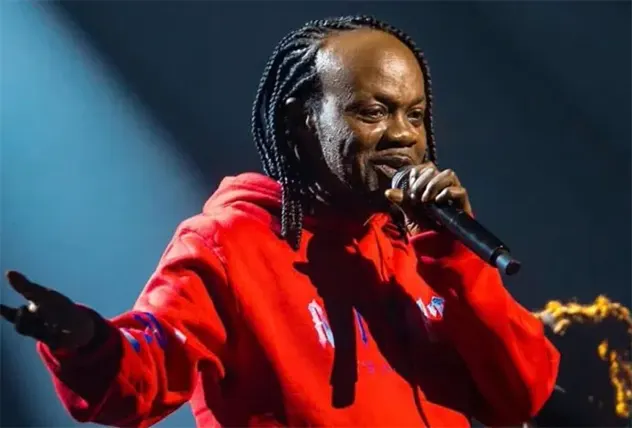Paragraph 1: The Passing of a Legend and Initial Arrangements
The Ghanaian music scene was plunged into mourning with the passing of highlife icon Daddy Lumba, whose real name was Charles Kwadwo Fosu. He passed away on Saturday at the Bank Hospital in Accra after a brief illness, the cause of which remains undisclosed. The news, confirmed by the Fosu family through their legal representatives, Baba Jamal & Associates, sent shockwaves across the nation and the diaspora, prompting an outpouring of grief and tributes. As the nation grappled with the loss, the family announced preliminary arrangements to honor the legendary musician, including the opening of a book of condolence and a candlelight vigil. The book of condolence was made available at Lumba’s private residence, offering fans and well-wishers a platform to express their condolences and pay their respects.
Paragraph 2: Commemorative Events and Public Participation
The Fosu family, while acknowledging the immense public support and messages of comfort, requested privacy during their period of mourning. They encouraged public participation in the planned commemorative events, emphasizing the importance of celebrating Lumba’s remarkable contributions to Ghanaian music and culture. The book of condolence, situated at his residence at Kinshasha Crescent, House Number 12, was opened to the public daily from 9:00 a.m. to 4:00 p.m., providing a dedicated space for individuals to share their memories and express their gratitude for his musical legacy. These arrangements served as a testament to the profound impact Daddy Lumba had on the nation.
Paragraph 3: A Candlelight Vigil to Illuminate a Life’s Work
Further honoring Daddy Lumba’s enduring legacy, a candlelight vigil was organized by the Creative Arts Agency, scheduled for Saturday, August 2, 2025, at Independence Square in Accra. This symbolic event, commencing at 6:00 p.m., aimed to bring together hundreds of fans, industry colleagues, and dignitaries to celebrate the life and musical achievements of the departed icon. The vigil represented not just a moment of mourning, but a collective acknowledgment of the profound influence Daddy Lumba wielded within the Ghanaian music industry and beyond. It offered a platform for shared remembrance and a celebration of his artistry.
Paragraph 4: From Humble Beginnings to a National Icon
Born in 1964, Daddy Lumba’s journey was a testament to talent, perseverance, and an unwavering passion for music. He ascended from humble beginnings to become one of Ghana’s most influential and enduring musical figures. His career, spanning over three decades, was marked by consistent innovation and a dedication to pushing the boundaries of highlife music. He released over 30 albums, each a testament to his prolific creativity and his ability to seamlessly blend traditional highlife rhythms with contemporary sounds, creating a unique and instantly recognizable musical signature.
Paragraph 5: A Musical Legacy That Transcended Generations
Daddy Lumba’s musical impact extended far beyond the realm of entertainment. His songs became anthems, resonating with Ghanaians from all walks of life. Hits like “Aben Wo Ha,” “Theresa,” and “Yentie Obiaa” etched themselves into the nation’s collective consciousness, becoming synonymous with celebrations, reflections, and the everyday experiences of Ghanaians. His music transcended generations, appealing to both young and old, solidifying his position not just as a musician, but as a cultural icon whose music became the soundtrack to the lives of millions.
Paragraph 6: Daddy Lumba: More Than a Musician, a Cultural Ambassador
Beyond the music, Daddy Lumba embodied cultural expression and national pride. He became a symbol of Ghanaian identity, influencing not just music, but also fashion, language, and social trends. His persona resonated deeply with Ghanaians, both at home and in the diaspora, fostering a sense of unity and cultural pride. His passing marked not just the loss of a musician, but the departure of a cultural ambassador who played a significant role in shaping Ghana’s cultural landscape. His legacy continues to inspire and resonate with generations of musicians and fans alike, ensuring that his contributions to Ghanaian music and culture will never be forgotten.














